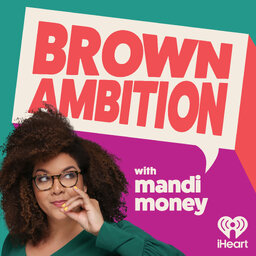How Do I Build Confidence In My Business and Charge What I'm Worth?
In this heartfelt and hilarious live BA QA session, Mandi Woodruff-Santos sits down with Emily Esquivel, a therapist-turned-entrepreneur who’s navigating the highs and lows of launching her own private practice. Together, they dive into the messy middle of entrepreneurship, from battling imposter syndrome to redefining what it means to run an ethical and sustainable business.
Emily opens up about her journey, including the pivotal moment that pushed her to leave toxic work environments, the emotional weight of using an inheritance to fund her dream, and the challenges of creating a high-ticket offer in a field that often undervalues its practitioners.
Mandi brings her signature blend of humor and wisdom to coach Emily through refining her business strategy, identifying her ideal client, and building confidence in her offer.Whether you’re dreaming of starting your own business or just trying to figure out your next career move, this episode is packed with relatable moments, actionable advice, and plenty of laughs along the way.
What We Covered:
• Emily’s Career Journey: From working in toxic environments to launching her own private practice.
• The Emotional Side of Entrepreneurship: How grief and family legacy shaped Emily’s decision to go solo.
• Imposter Syndrome & Confidence Building: Why believing in your offer is key to success.
• Ethical Business Models: Emily’s vision for creating a group practice that prioritizes therapists’ well-being over profits.
• High-Ticket Offers: The challenges of pricing and selling services in a way that aligns with your values.
• Marketing 101 for Entrepreneurs: Mandi’s tips on building a sales funnel, creating lead magnets, and nurturing potential clients.
FOLLOW BROWN AMBITION:
Follow us @BrownAmbition on IG, @brownambition on TikTok, and make sure you're signed up to get our weekly newsletter.
CHECK OUT EMILY ESQUIVEL:
https://oyanova.com
https://www.linkedin.com/company/oyanova-healing-pllc
In 1 playlist(s)
Brown Ambition
The Brown Ambition Podcast helps you unapologetically build wealth by saving, investing and making s…Social links
Follow podcast
Recent clips

Remote, Hybrid, or Stuck? ColorComm’s CEO on Advancing Your Career in Any Workplace
43:34

BA Q&A: How do I career pivot in my 50s?
27:40

The Gifts of Grief: Tiffany Aliche on Love, Loss and What Came After
1:15:53
 Brown Ambition
Brown Ambition